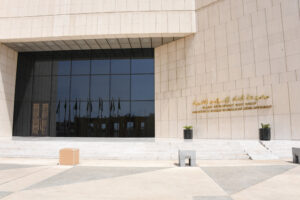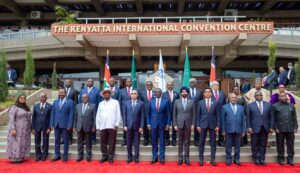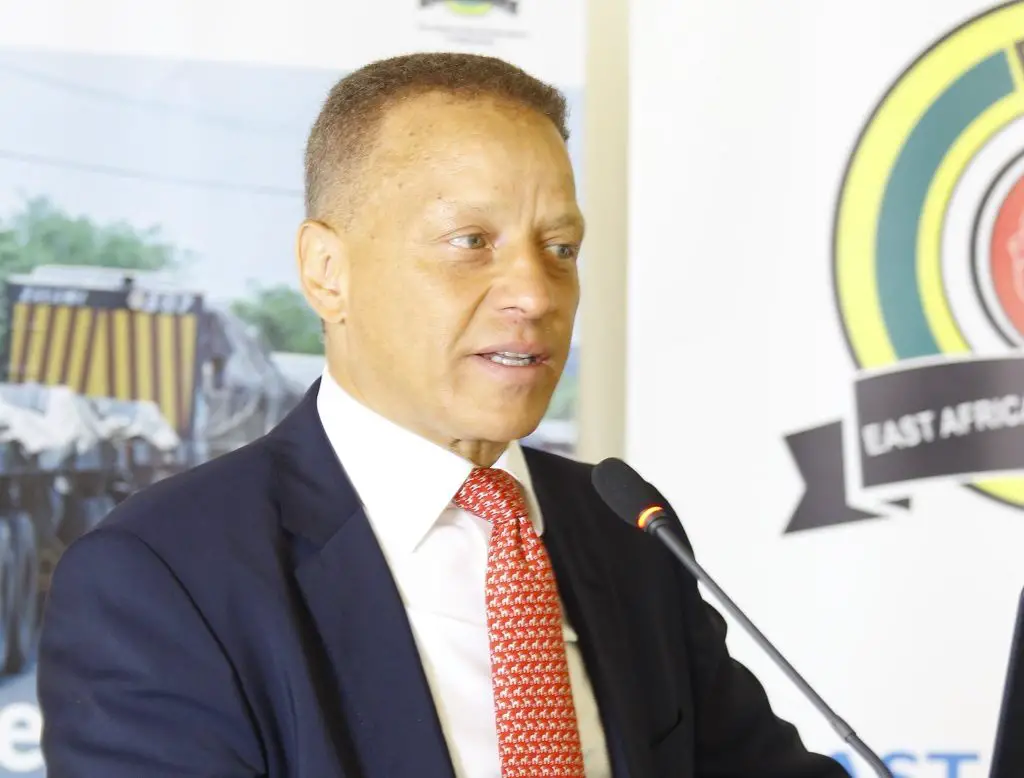- Saudi Islamic Development Bank to the rescue of Uganda with $295 million loan
- Reshaping the future of sustainable food systems in Africa
- African Heads of State call for tripling of World Bank’s concessional financing
- SpaceX offers Starlink kit at half price for first-time Kenyan customers
- Mobile Banking Reshaping the Gender Gap in Financial Inclusion
- Unleashing ideas: AIM Congress sets the stage for over 450 dialogue sessions
- Abu Dhabi welcomes over 330 partners for AIM Congress 2024
- Kenyan Farmers Receive $2M Boost from Africa Fertiliser Financing Mechanism
Browsing: World Bank
a section of African countries unveiled the African Continental Free Trade Agreement (AfCFTA) in March last year.
The agreement, which came into force in May 2019, can revitalize the African economic landscape over time and space, especially with the existing in many African countries.
The AfCTA comprises of 55 countries (with a combination of $2.5 trillion GDP) in Africa to a unified-single market. Despite African countries’ economies variation, still the free trade agreement comes at a greater moment when various regions in the continent, including Southern African Development Community (SADC ) and East Africa Community (EAC) are working to harmonize their economic affairs to boost trade, security, and industrialization.
The current economic and trading landscape
According to the African Development Bank’s (AfDB) African Outlook report of 2019, it showed the continents overall economic performance is gaining decent improvement, as as the GDP reached at an estimate of 3.5 per cent …
The Global Gender Summit which kicked off on November 25 in Kigali-Rwanda, and first summit of-its-kind to be held in Africa, emerged with rather vital issues in the second-day, whereby top-notch financial leaders rallied their desire to see support to women business across the African business landscape.
The summit is running on a theme “Unpacking constraints to gender equality” has drawn in presidents, high government officials, multilateral development banks, private sector, civil society and top business and finance leaders from across the continent, who have mainstreamed their ideas on how gender issues influence African finance.
READ:Promoting women will boost African economic growth, World Bank says
According to the African Development Bank (AfDB) press release, Dr. Jennifer Blanke the bank’s Vice President for Agriculture, Human and Social Development, aligned her ideas along side other Leaders from multilateral development banks, financial institutions and the private sector called on peers to dispel …
Women mean business in Africa, and available data shows that they tend to execute business operations or manage, compared to their male counterparts, thus—supporting women business with credit, business skills, and conducive operating environment might be the break that Africa has been eyeing.
According to the World Bank Report (Profit from Parity, Unlocking the potential of women business in Africa-2019), there are three factors that are found to limit women potentials in the business sphere, which are social norms, legal discrimination and the risk of gender-based violence ( for instance, the report shows, 14 per cent of women entrepreneurs in Malawi have been subjected to physical or emotional violence from their male counterparts).
All three factors are also buried under various segments such as endowment, which carry: education/skills, confidence or risks, finance and assets, networks and information. Another segment, that is an underlying constraint is the household level environment, which …
IFC and IFHA-II Coöperatief U.A., a private equity fund focused on health care in Sub-Saharan Africa, have launched a $115 million holding company to acquire and integrate targeted health care service businesses in East and Southern Africa.
The project will boost access to quality health care services to help improve lives and achieve universal health coverage across the region. IFC is investing $22 million in the Hospital Holdings Investment (HHI) holding company, an investment platform set up by IFHA-II, which is also supported by the European development finance organizations Swedfund, Proparco, Finnfund and IFU, Danish Investment Fund for Developing countries. HHI will be IFC’s largest equity investment in health care in Sub-Saharan Africa, outside of South Africa. IFC also mobilized $43.2 million from other investors.
“HHI is filling a critical gap in the health care sector by providing secondary and out-of-hospital care for middle to lower middle income patients in …
Lusaka as one of the fastest developing cities in southern Africa has acquired a rather vital sanitation fund to bring to life the $243 million Lusaka Sanitation Program (LSP), jointly funded by the African Development Bank (AfDB), the European Investment Bank, German Development Bank and the World Bank.
Read:Lusaka emerald auction generates US$18.6 million revenue
AfDB places Zambia’s economy growth (Real GDP) at an estimated at 4.0 per cent in 2018, compared to 4.1 per cent in 2017, whereas—the bank argues that, construction has also attributed to the growth, citing public infrastructure projects which increased at 10 per cent in 2018.
However, United Nations Children’s Emergency Fund (Unicef) poor sanitation results in a 1.3 per cent loss to Zambia’s national Gross Domestic Product (GDP) annually, which also contributed to Zambia’s high rate of child stunting (40 per cent), hence—research argues that, addressing the latter downplays the risk of stunting.…
The Tanzanian informal sector is one of the leading employers’ spheres and a rather pool for mushrooming local or indigenous knowledge and creativity, which eventually remains dormant, and not analyzed keenly.
Available data of the past shows how the informal sector bears merit to the convectional economy if utilized effectively. The International Labor Organization data points out that, non-agriculture jobs in the informal economy represent 66 per cent of all employment in Sub-Saharan Africa (SSA).
Further, about 74 per cent of women are within informal employment boundaries, compared to 61 of the males. Data published by Statista, show that agriculture sector—which has been attracting a multitude of the Tanzanian un-employed population, has been the leading employment sector since 2008, where it scored 73 per cent, today it stands at 66.35 per cent.
In August this year, Tanzanian’s National Bureau of Statistics (NBS) and Ministry of Finance and Planning, did a …
Pending bills by county governments, lack of harmony in policies and the multiplicity of taxes are among the issues facing the private sector in the counties…
Tanzania stands on a viable ground to revitalize its economy and expand production horizons via the effective utilization of its diverse human capital, including investing in both children and adults.…
Three years after the Banking (Amendment) Bill, 2016, became law, it is time now for Kenyans to brace themselves for expensive loans.
The law dictated that commercial lending rates could not be more than four per cent above the Central Bank of Kenya (CBK) benchmark rate.
But now, borrowers are at the mercy of the exploitative banking sector after regaining the freedom to vary lending rates.
MPs desert parliament for law to pass
On Tuesday, November 5, 2019, parliamentarians deserted Kenyans giving President Uhuru Kenyatta a victory in his decision to repeal the interest rates cap.
As is the tradition when important matters affecting Kenyans are being discussed, only 161 MPs were present to vote. It is a constitutional requirement that any law that needs amending has to have at least 233 MPs supporting it for it to pass.
By failing to overturn Kenyatta’s reservations on the Finance Bill, 2019, …
In order for Tanzania to acquire a highly equitable and sustainable economic growth incorporation of informed decisions is inevitable, hence, the latter are the new currencies of the 21-century development (particularly in the African landscape) which demand seamless tools to analyze, and yet—the World Bank, has just the set right direction to that.
According to the World Bank, lowering the cost of project monitoring and creation of feedback loops was their key goal, which brought them to interesting creative solutions.
The latter resonates with the high-demands of decision-makers to understand, impacts of their actions, which dictate future plans, thus—calling for feedback loops.
Feedback loops (as called by World Bank) tend to offer a form of incentive triggering an action, as most decision-makers wish to avoid the possibility of their inaction, ruining their future endeavors within data collection and other development angles.
This means that, various development projects executed by the …








